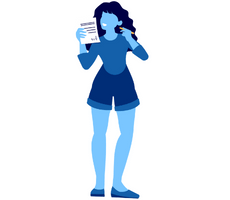
Moving home?
Sort out all your utilties!

So you are looking to rent a property but aren’t sure what your rights and obligations are? Perhaps you are wondering if your landlord is acting appropriately or if you are in need of financial assistance? Discover these answers and much more in our comprehensive handbook for tenants in Ireland.

Moving House? Set up All Your Utilities At Once!
Set up your energy, broadband and waste in one hassle-free call!

Need To Sort Out Your Utilities for Your Move?
We're currently closed but please leave us your number and we'll give you a free call as soon as we're open!

Before we go into the nitty-gritty details, it is important to know that, as a tenant, you have both rights and obligations to follow as set by the Residential Tenancies Act of 2004.
We understand it can sometimes be difficult to find a good place to rent or know if the property you plan to rent from is respecting the tenancy laws and regulations.
As such, we list below your rights as a tenant. Note that your lease agreement December contain additional clauses with further details on your rights:
What is a tenant? The tenant definition provided by the Residential Tenancies Board (RTB) is a person who rents a property from its owner. This could be either a house, flat or even just a room in a house share. In any of these circumstances, you’ll be protected by your tenant rights.
Occupants living in specific student housing have a few differences to note from the above list, these are:
Students also have to manage different energy bills and other costs from the rest of the population since there are usually student discounts.
Check Out Our Student Costs Guide!
If you happen to be placed in social housing or live in cooperative housing, there are a few differences to note about your tenant rights, these are:
Rental Financial Help Those suffering from financial hardships can also apply for the HAP scheme. The programme gives funding and pays your monthly rent directly to your landlord for you.

Should you want to rent a furnished accommodation, we would suggest you take the following additional precautions:
The RTB has a great sample for an inventory and condition report you can download or you can download our Inventory Checklist!
Not all landlords provide a lease to sign, nor are you obliged to sign one as a tenant.
No lease tenant rights and obligations are the same in Ireland as renters with a lease. No agreement can take away your privileges held under the Equal Status Act or the Residential Tenancies Act.
Tenants who sign a lease agreement should read it carefully before signing and ensure they can meet all the obligations listed. If you have any doubts or do not fully understand an agreement you are asked to sign, you should always get a second opinion or hire a solicitor.
Having rights and being protected from nasty landlords is one thing, however, one cannot forget that tenants also have obligations to comply with.
If you are renting a property from a landlord, here are some of your obligations as a tenant:

Moving House? Set up All Your Utilities At Once!
Set up your energy, broadband and waste in one hassle-free call!

Need To Sort Out Your Utilities for Your Move?
We're currently closed but please leave us your number and we'll give you a free call as soon as we're open!
As with your tenant rights, social housing renters have the following extra obligation to respect:
Should you ever have a dispute with your landlord, it will be more difficult for your rights to be upheld if you do not respect your obligations.

Apart from meeting the minimum standards of accommodation, the other main responsibility of the landlord is to complete the tenant registration process.
If you are adding a tenant to a council house in Ireland, you usually need to seek authorisation from the local authority first.
Check out the rent-a-room scheme if you are looking for a tenant to rent a room to instead of an entire property. There are very different rights and obligations that apply in such a scenario.
The RTB is a great resource for landlords if you want to know how much notice to give a tenant or how to evict a tenant in Ireland.
If, on the other hand, you have had a great experience with your renters, you December want to know how to write a reference letter for a tenant. Here are some quick tips on what your letter should include:
Should you be in the unfortunate situation of having a dispute with your landlord, rest assured that you do have some recourse available.
First and foremost, we would always recommend you try your utmost to settle your differences with your landlord directly. It will avoid everyone involved with many headaches and stress.
Quick tip! Try to keep the conversation informal in a relaxed atmosphere. Open-ended questions tend to work better, for example; ‘Can you think of possible solutions for this?’ better than ‘You need to do this or that.’ - let them make the suggestion - your landlord cannot say no to something they themselves suggest whereas it is much easier to say no to any request you ask.

If you are unable to find a suitable solution to the problem, you are first presented with the following two options:
Should either of these options fail to reach a dispute resolution, you can then take your case before the tribunals. You must receive an adjudicator's decision on your case before you can go to the courts under an appeal of the decision.
If you accept the adjudicator's decision or, after the tribunal’s decision, you will receive what is called a Binding Determination Order. This decision is final and legally binding to all parties involved in the case.
This is why it is always better to do everything you can to resolve your differences directly. One cannot know what the courts or adjudicator December decide, settling ahead of time ensures you won’t be left worse off by a legal decision.
Let’s face it, whether you're renting in Dublin or renting in Cork, with the ongoing housing crisis, house and rental prices continue to be ridiculously high in Ireland.
To fight these price hikes, the Government has established a few schemes to help tenants financially, these are:

Moving House? Set up All Your Utilities At Once!
Set up your energy, broadband and waste in one hassle-free call!

Need To Sort Out Your Utilities for Your Move?
We're currently closed but please leave us your number and we'll give you a free call as soon as we're open!
If it is more advice, support, or general information about being a tenant in Ireland you are looking for then have a look at the following two main governing bodies:
Be sure to also browse through our other tenant guides and tips for further assistance.
Find out more about our offers from energy, broadband and waste collection providers!
The services and products mentioned on this website may only represent a small selection of the options available to you. Selectra encourages you to carry out your own research and seek advice if necessary before making any decisions. We may receive commission from selected partner providers on sales of some products and/or services mentioned within this website. Our website is free to use, and the commission we receive does not affect our opinion or the information we provide.
Moving Home in 2026?